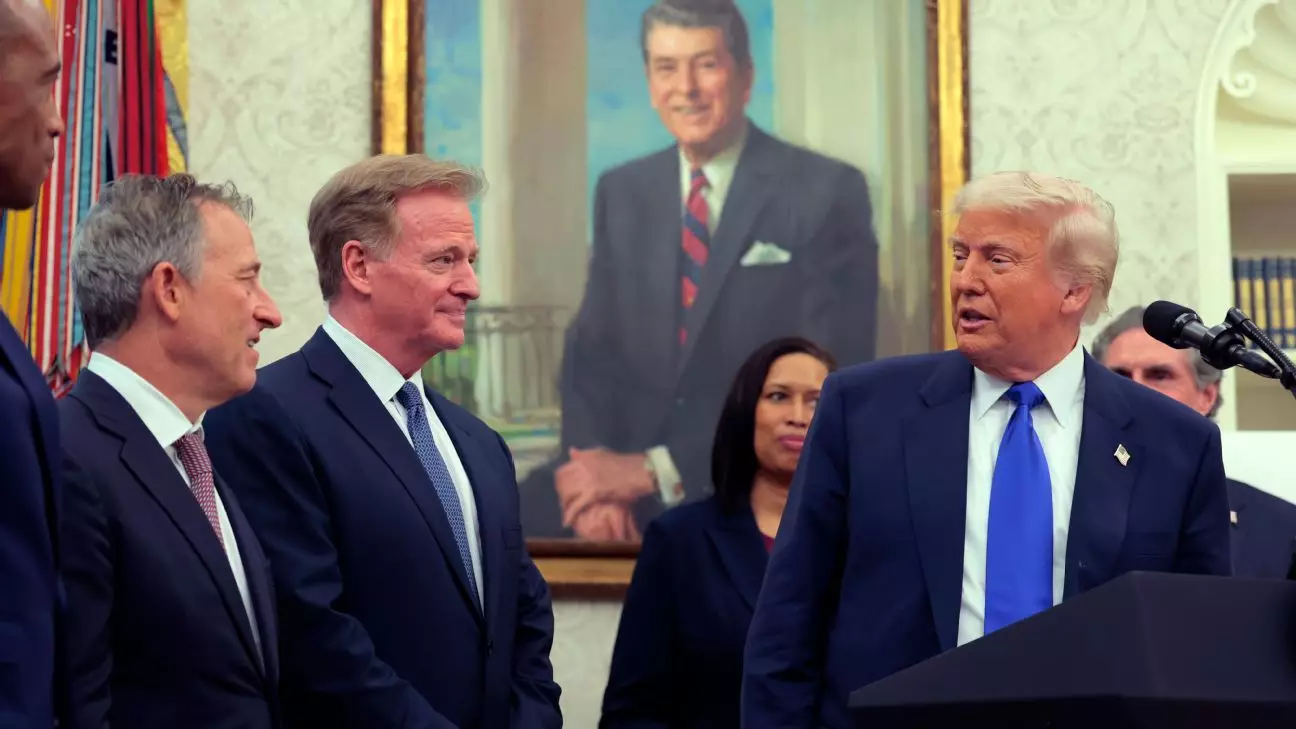The announcement of the NFL draft returning to Washington D.C. in 2027 has sent waves of excitement across the nation, with projections suggesting that attendance could exceed a stunning one million fans. During a press event at the White House, NFL Commissioner Roger Goodell and Washington Commanders owner Josh Harris discussed this ambitious goal, generating buzz about the monumental event. “I believe we’ll get over a million people,” Harris confidently stated, underscoring the enthusiasm surrounding the draft.
The venue itself—the National Mall, with the iconic Capitol building serving as the backdrop—evokes a sense of pride and unity. Planning for a crowd of this magnitude isn’t just ambitious; it reflects the growing cultural impact of American football in the nation’s capital. As attendees gather, they’ll be part of a historical moment that isn’t merely sports-related but embodies a larger celebration of American culture.
Record-Breaking Expectations
If Harris and Goodell’s estimates hold true, this draft would obliterate past attendance records. In comparison, Detroit’s hosting of the draft attracted over 750,000 fans just two years ago. This upward momentum is remarkable; Green Bay, known for its fervent support of the Packers, managed to pull in more than 600,000 fans last month. The enthusiasm for the draft has morphed it into one of the premier sports spectacles in the country, drawing attention not just from football aficionados but from millions who revel in the festive atmosphere.
This developing narrative hints at a broader transition for the NFL draft. Originally confined to broadcast television, the event has evolved into a multimedia bonanza, reaching audiences through various platforms and captivating viewers with its competitive essence. Indeed, the first round of the draft last month attracted over 13.6 million viewers online and on TV, highlighting the event’s surge in popularity and its ability to connect with fans on multiple fronts.
A Strategic Move for Washington D.C.
The excitement surrounding the draft dovetails perfectly with the recent announcement of a new stadium deal at the RFK Stadium site, located that’s just two miles from the Capitol. This nearly $4 billion investment not only aims to revitalize the area but is expected to bring substantial economic benefits. Previous drafts have demonstrated undeniable financial impacts on host cities—Detroit’s economic boost was estimated at $213.6 million.
Mayor Muriel Bowser, who was seen alongside Harris and Goodell during the press conference, articulated a strong vision of what hosting such a prominent event means for the capital. “This will show the world how far the nation’s capital has come and where it’s going.” Such statements manifest Washington D.C.’s desire to position itself as a modern hub for significant cultural events, enhancing its stature on the national and international stage.
As anticipation builds towards the 2027 NFL draft, it’s clear that this celebration represents more than just a sports milestone; it signifies a pivotal moment of recovery and transformation for a city rich in history. In an age where sporting events have the power to unite and inspire, the Washington D.C. draft is poised to be an unforgettable experience, capturing the collective spirit of a city and a nation.

